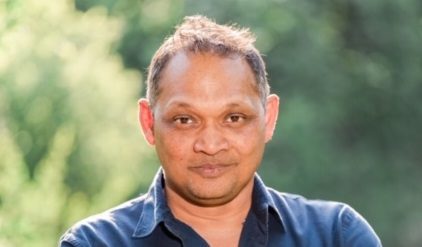Herman Singh says that the silent middle class needs to stick around and make a change in South Africa.
I wrote this in Saudi Arabia after the country was attacked by UAVs this week. The attacks occurred while I was working for a client on assignment in Riyadh. Eighteen months ago missiles had been launched into the airport and were shot down by the Patriot defensive shield. A single person, an expatriate, was killed by debris from the destroyed missile as it crashed, close to where I am writing this.
I was motivated to write this when a colleague in South Africa asked me if it was safe to come to Rosebank for a meeting, due to protest action. I pointed out that I was in a country under military attack with 17 sites now in flames in the desert as I was typing. His only issue was angry people dancing badly with incoherent signs while singing out of tune. Other than the obvious damages to the senses and your sense of humour I’m guessing that your biggest risk is to your car, paid for by insurance.
I got to thinking about how South Africans do carry the world on their shoulders and are convinced that they live in a hellhole. I don’t wish to underplay the issue of protest action, crime, road death or corruption, but seriously we do need to get some perspective and it becomes apparent when you look at our country from outside.
If you travel to 20 to 30 countries a year like I do you will quickly come to realise that there is no Nirvana. All countries have upsides and downsides. From weather and the economy to currency and corruption, national features vary tremendously between the 220 countries in the world.
South Africans love picking up a few areas in which we underperform and hold that up as if we are a shithole while casually ignoring the dozens of others features where we outperform significantly. They also ignore the fact that on most issues where we underperform like crime, corruption, weak government and so on, I can show you dozens of countries, or in some cases hundreds, that are far, far worse than us.
The assessment of a country, like the choice of a product, is actually a very logical and transparent processed based on hundreds of factors. Yes, South Africa is falling in the rankings by all measures, but let’s be clear, we are still in the upper quartile of all countries on the planet.
If SA was a student we would be getting distinctions compared to our classmates. You can look at assessments from the World Bank, IMD competitiveness studies, OECD studies, IMD reports, UN reports and so on, and South Africa is almost always in the top 30 or 40. We also are about the 35th largest economy on the planet. Out of 220 countries, we are an A Student. Our students, graduates, entrepreneurs and business leaders, jurists and thought leaders stride the world attracting respect and pride. We are seen as a struggling country with huge potential
But what is hindering us is that we look at the country through rose-tinted lenses and with expectations from an imbalanced society of privilege. We see the slide and resent it tremendously and instead of diving in to fix it, we leave. That’s crazy. It’s the behaviour of entitlement. We are entitled to A or B and if we don’t get it then we will leave.
Well, that’s not how nations are built or changed. Successful countries are built by those who carry the country upon their shoulders through sheer force of collective will. We are lacking this now because emigration is relatively easy. It’s easier to pack up and leave than fight to win. Billions in the world don’t have that option. They take a long-term view and teach their children that today’s sacrifice will pay off one day.
It’s time for South Africans to unite around a few core issues of underperformance and for the silent middle class who fund everything to push back and drive their agenda. Be it through changing the way their pensions are invested or the way they spend monthly or even the way that they stand together to protest, we are not powerless.
This week, it was announced that $15 trillion of sovereign funds have decided not to invest in firms that are climate change unfriendly. Your national policy is now not relevant. Denialist is irrelevant. Your president and parliament are not relevant. The flow of money will change the world, and change the way that your money flows.
The middle class need to learn to toyi-toyi. We need to absorb protest politics and use it to our advantage to become more radical in finding ways to push the middle road and the more logical and well-informed agenda. We must challenge the ridiculous extreme left and right-wing. We cannot be silent any longer. We must get informed and help to hold the line. It’s a collective responsibility. Not the job of a minority!











